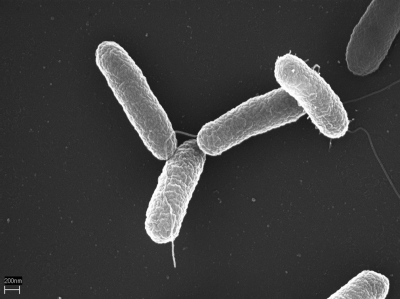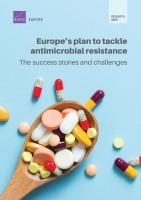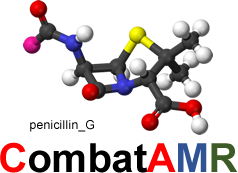
>Translating Political Commitments into Action -the development & implementation of National Action Plans on Antimicrobial resistance in Europe: A Study.
Pub. December 2018 by European Public Health Alliance (EPHA).
https://epha.org/wp-content/uploads/2019/02/amr-nap-paper.pdf
https://epha.org/wp-content/uploads/2019/01/nap-paper-executive-summary.pdf
The last two decades have witnessed several global, European and national initiatives to combat antimicrobial resistance (AMR). At the World Health Assembly in 2015, all UN Member States endorsed the Global Action Plan on AMR and adopted a Resolution, recognising the importance of tackling AMR through a “One Health” approach, involving different actors and sectors, and committing to develop by 2017, national action plans (NAPs) on AMR aligned with the Global Action Plan.
Coherent and robust policies are crucial to effectively combat AMR. A national action plan serves as a guiding policy framework in the fight against AMR, whereby different multi-sectoral actions are aligned and coordinated. A complete overview of which countries have developed an action plan is necessary to compare actions and measures, learn from best-practice examples and overcome common challenges. Despite the fact that all EU and EFTA Member States surveyed reported the implementation, publication or development of a NAP, the database demonstrates significant variation in the stages of development of NAPs in these countries and more importantly, the implementation of national plans at local level has not been optimal.
>The new EU One Health Action Plan against Antimicrobial Resistance
In June 2017 the Commission adopted the new EU One Health Action Plan against AMR
Download pdf: https://ec.europa.eu/health/amr/sites/amr/files/amr_action_plan_2017_en.pdf
It was requested by the Member States in the Council conclusions of 17 June 2016. It builds on the 2011 action plan, its evaluation, the feedback received on a European Commission Roadmapon AMR and an open public consultation.
This new plan supports the EU and its Member States in delivering innovative, effective and sustainable responses to AMR; strategically reinforce the research agenda on AMR and enable the EU to actively promote global action and play a leading role in the fight against AMR. Its overarching goal is to preserve the possibility of effective treatment of infections in humans and animals. It provides a framework for continued, more extensive action to reduce the emergence and spread of AMR and to increase the development and availability of new effective antimicrobials inside and outside the EU.
The key objectives of this new plan are built on three main pillars:
- Making the EU a best practice region
- Boosting research, development and innovation
- Shaping the global agenda
The new plan contains concrete actions with EU added value that the Commission will develop and strengthen as appropriate in the coming years for a more integrated, comprehensive and effective approach to combating AMR. A progress report on its implementation is available here. This progress report will be regularly updated.
The Commission has also adopted the first deliverable of the plan: the EU Guidelines on the prudent use of antimicrobials in human health (all languages available). The guidelines aim to reduce inappropriate use and promote prudent use of antimicrobials in people. They target all actors who are responsible for or play a role in antimicrobial use.
Antibiotics are precious resources used every day to help cure common illnesses and prevent infections during surgery. Unfortunately, because of excessive use, bacteria become resistant, leading to antimicrobial resistance (AMR). As a result, antibiotics become less effective and ultimately useless. AMR presents a serious social and economic burden. It is estimated to be responsible for 25,000 deaths per year in the EU alone and costs EUR 1.5 billion annually. The EU is leading the way with an Action Plan that supports Member States and promotes collaboration across sectors and society to fight AMR together. © European Union, 2017 / Source: EC - Audiovisual Service
>COMMISSION NOTICE - EU Guidelines for the prudent use of antimicrobials in human health
(2017/C 212/01) https://eur-lex.europa.eu/legal-content/EN/TXT/HTML/?uri=CELEX:52017XC0701(01)&from=EN
>Joint Programming Initiative on Antimicrobial Resistance - JPIAMR
https://www.jpiamr.eu/activities/alignment-actions/alignment-plan/
The Joint Programming Initiative on Antimicrobial Resistance (JPIAMR) was formed 2011 by 15 European Countries with the support of the European Commission and now comprise 26 countries globally. It is funding 65 M Euros of basic and exploratory research on new antibiotics, stewardship of existing antibiotics, and studies and control of the spread of antibiotic resistance between humans, animals, and the environment in a One Health perspective. It also supports research through several activities such as the establishment of a Virtual Research Institute. JPIAMR coordinate national research programmes on AMR through its Strategic Research Agenda and with input from the IMI and a network of non-governmental stakeholders.
Most JPIAMR member countries have a National Strategy, policy or guidelines for Antimicrobial Resistance or are in the process of developing one. Many of those currently developing their agendas take account of the Strategic Research Agenda that provides a strong basis for relevant information. JPIAMR is collecting an update of all the activities and action plans on AMR that are taking place in Member states at national levels. NB: Provides a library of JPIAMR members who have developed National plans on AMR.
>Evaluating the EC Action Plan Against Antimicrobial Resistance (AMR)
https://www.rand.org/randeurope/research/projects/eu-action-plan-against-amr.html
On behalf of the Directorate-General for Health and Food Safety of the European Commission (DG SANTE), RAND Europe conducted an evaluation of the EC Action Plan from 2011 to 2015.
Background: Through overuse and misuse of antibiotics and other antimicrobial agents, many micro-organisms have become resistant to them. The European Commission in 2011 announced an Action Plan against the rising threats from antimicrobial resistance (AMR) that contains 12 actions for implementation with EU member countries to achieve progress on six objectives: the appropriate use of antimicrobials, infection prevention, research and innovation on new antimicrobials and treatment alternatives, international collaboration, monitoring and surveillance, and awareness.

Photo by Volker Brinkmann
The Action Plan played an important role in galvanising action on AMR issues within the EU. The European Commission and agencies should continue providing support to encourage good practice in public health services and surveillance in Member States, and focus more attention on the development of alternative treatments in addition to new antimicrobials.Salmonella typhimurium
Max Planck Institute for Infection Biology, Berlin, Germany/CC BY 2.5

>Evaluating the EC Action Plan Against Antimicrobial Resistance (AMR)
RAND 03.11. 2016: Europe's plan to tackle antimicrobial resistance: The success stories and challenges
This brief presents a summary of findings from the European Commission's "Evaluation of the EC Action Plan against the rising threats from antimicrobial resistance."
Smith, Elta, Catherine A. Lichten, Jirka Taylor, Calum MacLure, Louise Lepetit, Emma Harte, Adam Martin, Ioana Ghiga, Emma Pitchforth, Jon Sussex, Elma Dujso, and Jasper Littmann, Europe's plan to tackle antimicrobial resistance: The success stories and challenges. Santa Monica, CA: RAND Corporation, 2016. https://www.rand.org/pubs/research_briefs/RB9930.html.
>https://ecdc.europa.eu/sites/portal/files/documents/AMR-surveillance-Europe-2016.pdf
>Antimicrobial resistance I: Situation and strategies in Europe ...
https://www.bfr.bund.de/.../antimocrobioal-resistance-I-situation-and-strategies-in-eur...
30 Nov 2017 - RESISTANCE EVOLUTION. H2020. 2015. 2020. CARTNET. H2020. 2018 ...Antimicrobial resistance appears at the top of the list of IMI's health.
